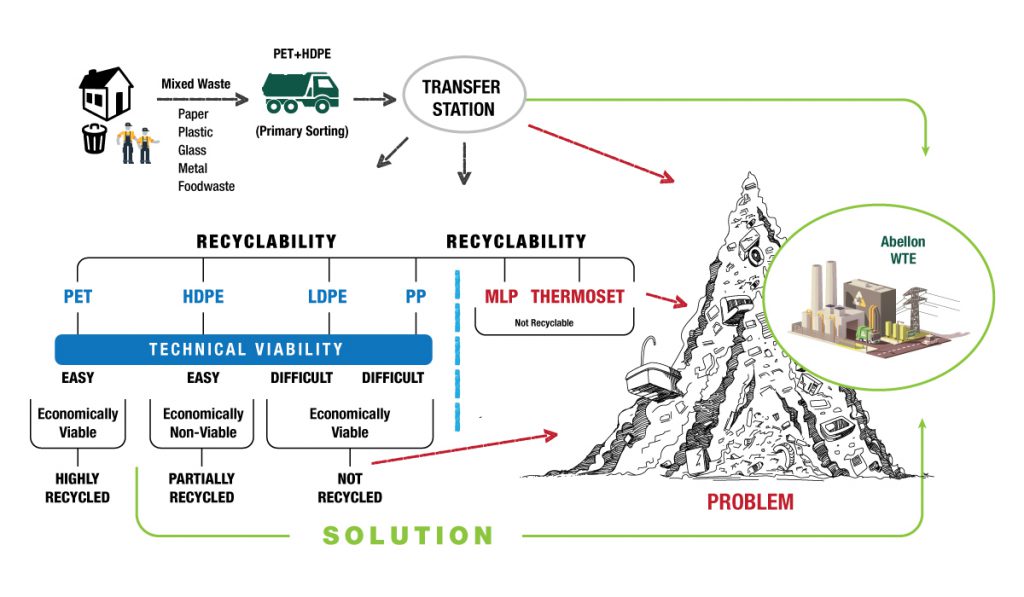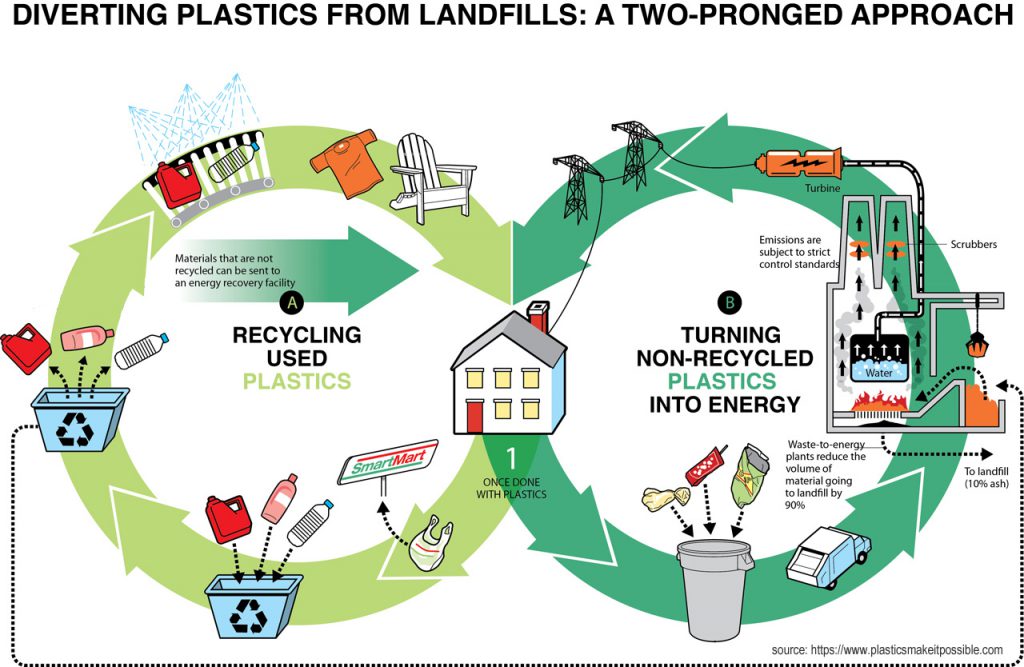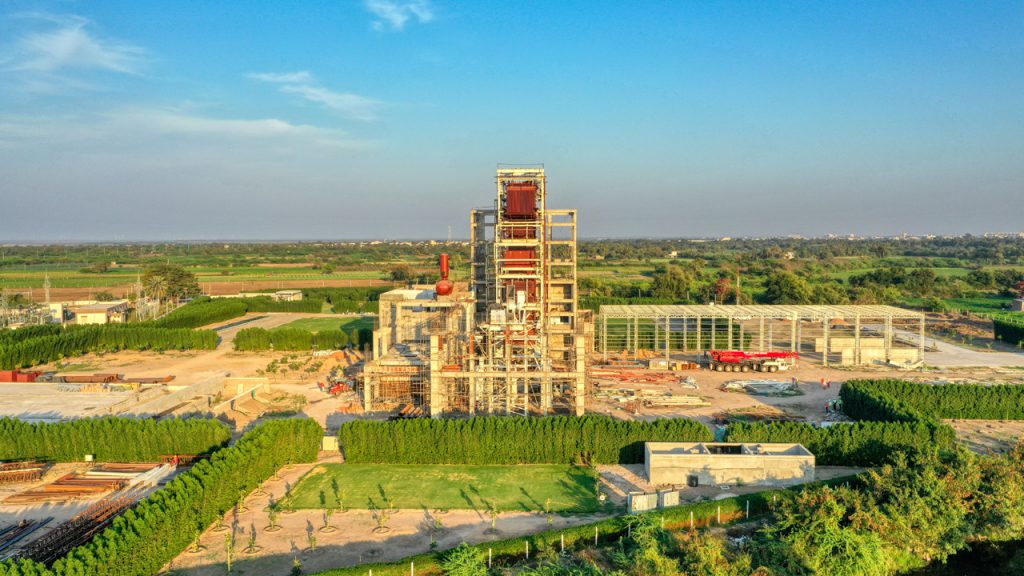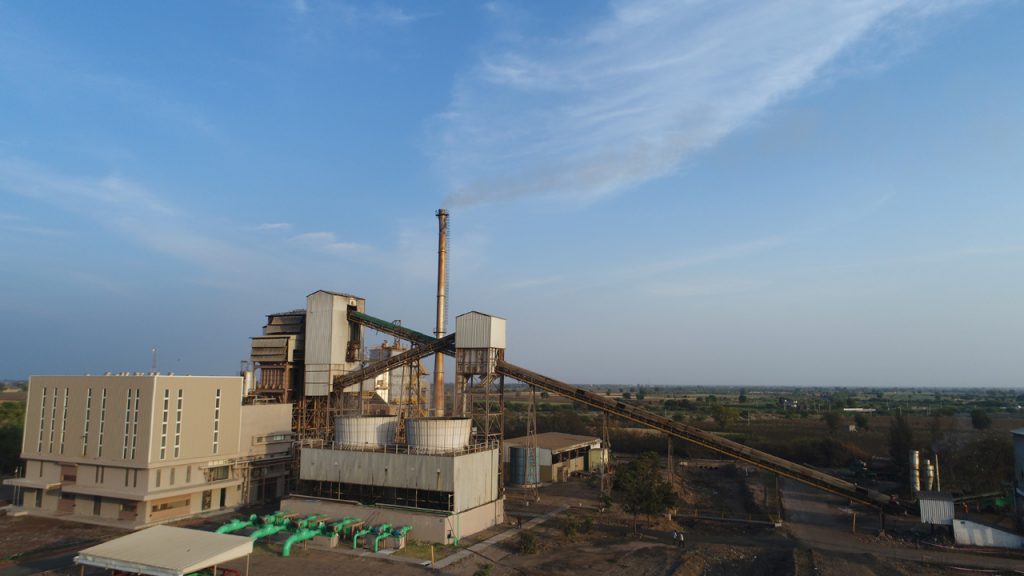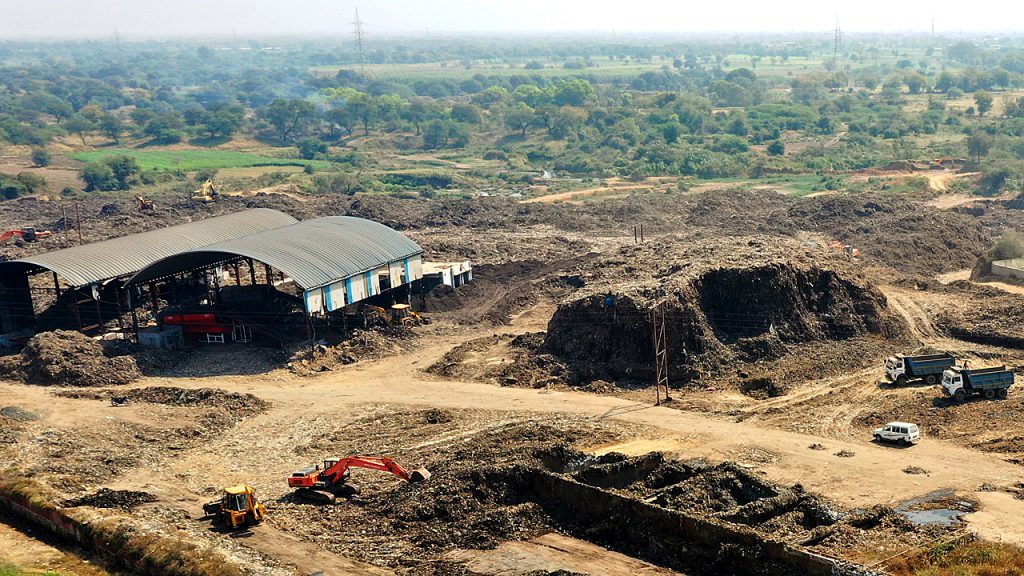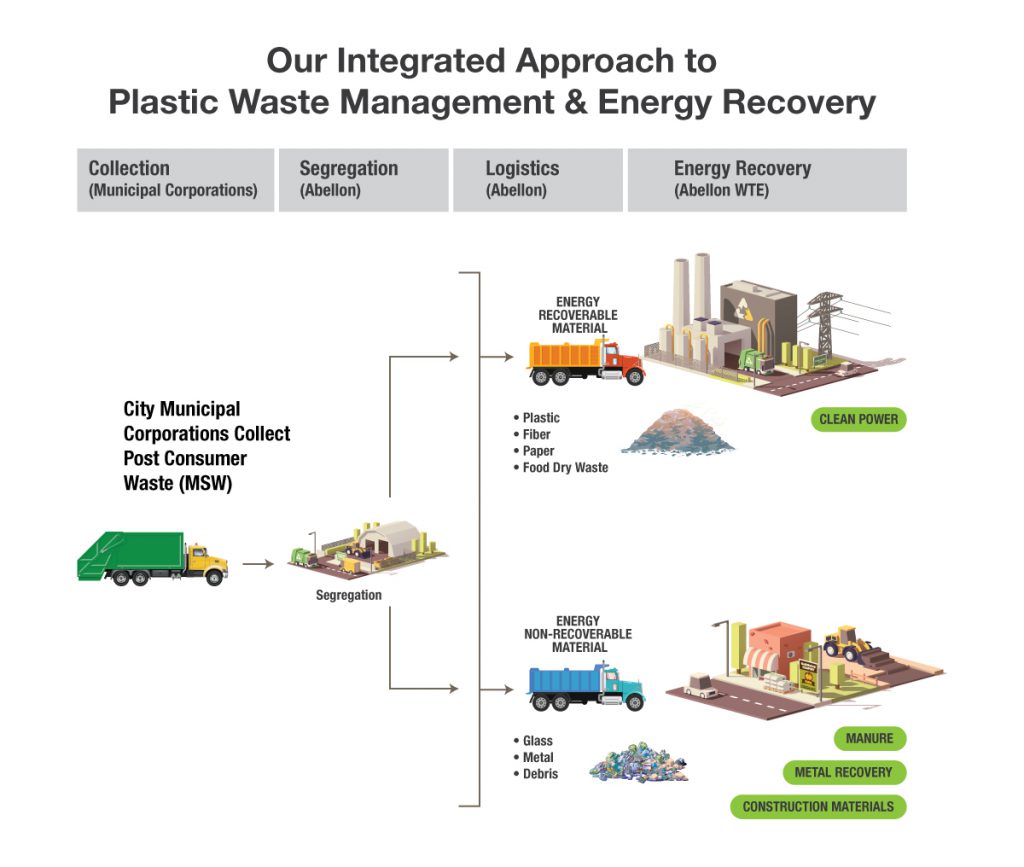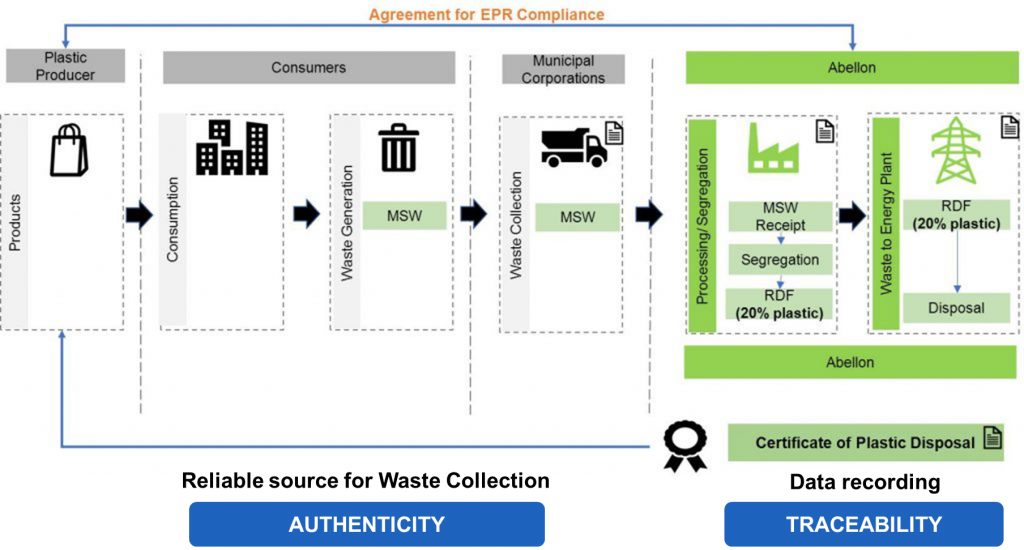As the leader in waste to energy in India and an organization committed to the goals of Swachh Bharat Mission, Abellon has entered into long-term concession agreements with various municipal corporations to process and dispose of municipal solid waste.
Municipal Solid Waste includes 8 to 12% of post-consumer plastic waste such as Multi-layered plastic waste (MLP), packaging material, single-use plastic, sachets, tubes, plastic packaging films, plastic packing containers, etc. These are typically difficult to process and dispose of any other way except through landfill or dump sites, where plastic degrades and leaches into soil and groundwater and slowly enters into the food chain.
Thermal recycling is one of the best solutions to the plastic waste management problem where energy produced from this waste is fed back to consumers in line with circular economic principles.
Abellon offers several significant advantages including globally proven, industrial scale, mature, and environmentally compliant technology, as well as end-to-end traceability and accountability of the waste, which makes us a preferred waste management agency to help fulfill EPR obligations. Abellon generates a diversion certificate that is issued to PIBOs as part of the compliance fulfillment process.
By partnering with Abellon as a Waste Management Agency (WMA), plastic producers, importers and brand owners (PIBOs) also have the opportunity to contribute to the goal of a clean, green, and energy independent India by reducing plastic pollution.


